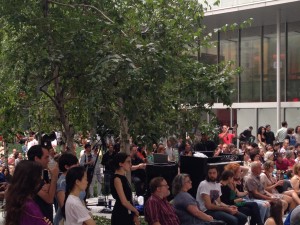Lately, I’ve been concerned with the PLACE component in Time & Place. But locating a story in TIME is also an important factor in setting the scene. This is obvious in historical fiction, but I think the timeline in a contemporary setting is critical, too.
When—exactly—does the story take place?
Is it autumn in New York when the lovers take a walk in Central Park or is it a steamy day in July? Do the characters go to the Museum of Modern Art on a Thursday in the August—when it’s open late—or a Thursday in the October when it closes at 5:30? How long does it take to drive from Woodbridge, Virginia to Washington D.C.? When is the Florence Marathon held? (November 29 in 2015) When does the sunset in Amsterdam in early December? When does the season begin at the Sydney Opera House? And how long is the train ride from Brussels to Bruges?
It’s not hard to nail down the temporal details that add realism to fiction. It’s easy if you know the turf personally, but many of these facts are easy to find on the Internet. Of course one of the above questions would require a consult with an expert?
Which one? (see answer below)
Answer:
(Driving time from Woodbridge to DC… Only a friend living that neck of the woods would have an answer and it’s qualified by the time of day, day of the week and seasonal considerations, too.)






Time has always been a huge part of my writing too because time and place are not just stage dressing, they can and should influence the twists and turns of the plot as well. If they do, the plot is more likely to evolve in a seamless, organic way that makes the reader feel they ‘should have seen it coming’. Except, of course, they didn’t. 😀
Yes! You get it. TIME has to move through the story at a rate that reflects what’s happening and the characters can’t be static as time passes. There are a lot of mysteries with static characters. The characters are described quickly and easily, as if the experiences they have during the course of the story have no impact. I think it’s lazy writing.
In addition, time helps create the atmosphere. If it’s organic/natural it helps create the illusion of reality, regardless of the far fetched or crazy story. As all mystery writers aspire to the “Oh yeah I should have figured it out!” moment. Time is of the essence! LOL